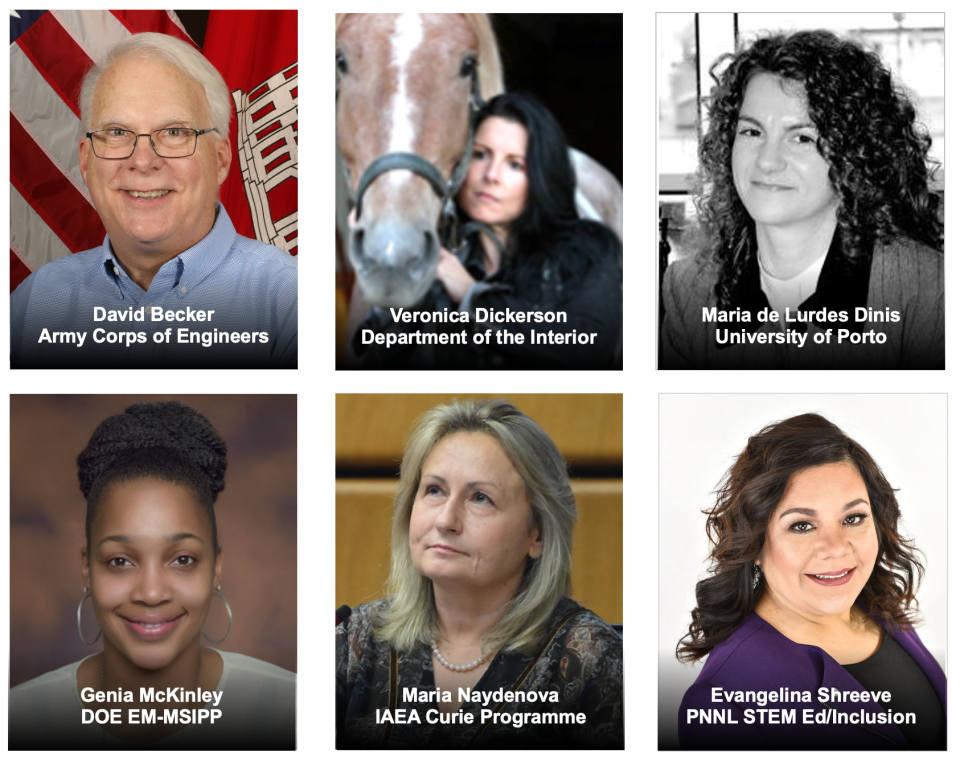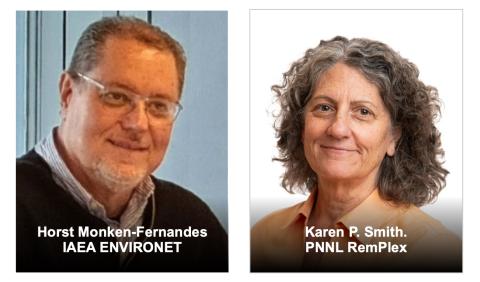Workforce Development in the Environmental Remediation Field
The Center for the Remediation of Complex Sites and the International Atomic Energy Agency’s Network of Environmental Remediation and NORM Management co-hosted a dynamic panel discussion about workforce development challenges and opportunities.
Tuesday, August 13, 2024
Recording:
MINDER Presentation (PDF)
DOE EM-MSIPP (PDF)
IAEA Meitner and Curie Fellowship Programme (PDF)
Seminar Abstract
Access to a trained workforce is one of the biggest challenges facing implementation of technically sound, cost-effective, timely, and sustainable remediation projects. Even in sectors and countries with robust remediation-support infrastructure, workforce development can be a significant constraint that threatens to worsen as the current workforce ages toward retirement.
The Center for the Remediation of Complex Sites (RemPlex) presented “Workforce Development in the Environmental Remediation Field” on August 13, 2024, on Zoom. The seminar was jointly hosted with the International Atomic Energy Agency’s Network of Environmental Remediation and NORM Management (ENVIRONET).
This seminar engaged panelists with direct experience as Science, Technology, Engineering, and Math (STEM) education program managers, university-level educators, and agency and industry leaders who are facing shortages of trained staff. Centered on a discussion of workforce development challenges and opportunities, topics explored included:
- building effective multidisciplinary teams that integrate physical sciences, engineering, health risk management, information technology, cost estimation and budgeting, project management, stakeholder engagement, and more;
- growing a pipeline of professional development that spans the recruitment of students through providing continuing education for the existing workforce;
- making sure the expertise and experience of senior practitioners is retained through knowledge management; and
- developing a diverse workforce and maximizing its value.
International Panelists

- David Becker, U.S. Army Corps of Engineers, Environmental and Munitions Center of Expertise; adjunct professor at University of Nebraska-Omaha
- Veronica Dickerson, U.S. Department of the Interior, Environmental Compliance and Cleanup Division
- Maria de Lurdes Dinis, University of Porto, lead of the Erasmus Mundus Joint Masters in Nuclear Decommissioning and Environmental Remediation (MINDER)
- Maria Naydenova, IAEA, Marie Sklodowska-Curie Fellowship Programme project manager
- Genia McKinley, U.S. Department of Energy, Office of Environmental Management, EM Minority Serving Institutions Partnership Program (EM MSIPP)
- Evangelina Shreeve, Pacific Northwest National Laboratory, chief inclusion officer and director of STEM Education
Facilitators

- Horst Monken-Fernandes, IAEA scientific secretary of ENVIRONET
- Karen P. Smith, Pacific Northwest National Laboratory, RemPlex deputy director of operations
Opportunities
Applications Due September 30 for IAEA’s Marie Skłodowska-Curie Fellowship Programme
The International Atomic Energy Agency (IAEA) hosts the Marie Skłodowska-Curie Fellowship Programme to support young women in pursuing a career in the nuclear field. The program provides scholarships to selected students studying towards a master’s degree in nuclear-related subjects as well as internship opportunities facilitated by IAEA. Applications for the 2024 program are being received through September 30, 2024. Please visit this website for more information about the program and how to apply: https://www.iaea.org/services/key-programmes/together-for-more-women-in-nuclear/iaea-marie-sklodowska-curie-fellowship-programme.
DOE-EM MSIPP at PNNL: Environmental Management Internships
Through the Minority Serving Institutions Partnership Program (MSIPP) with the Department of Energy (DOE) Office of Environmental Management (EM), Pacfici Northwest National Laboratory (PNNL) is helping build a diverse future workforce in environmental remediation and cleanup. As interns grow in their research expertise and develop their network with some of the world’s top environmental experts, they’ll also discover exciting career options open at PNNL and other national laboratories across the nation. Applications typically open in October/November for placement the following June. Find many more details about the options and application process here, https://www.pnnl.gov/environmental-management-internship.